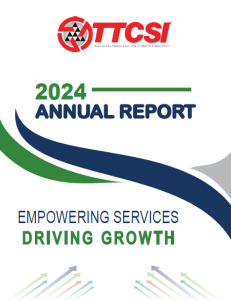The Trinidad and Tobago Coalition of Services Industries (TTCSI) is deeply concerned with the current state of play between government and the labour movement in particular. This is contributing to economic uncertainty and has the potential to retard economic recovery. It must be resolved.
We welcome the government’s approach geared toward consultation but, given the current state of the local, regional and global economies, TTCSI believes that a structured multi-partite approach to economic restructuring is required. Such collaboration should attempt to forge a dispassionate consensus on how to allocate the costs, risks, benefits and dislocation which must arise along the continuum of actions necessary to transition Trinidad and Tobago to a globally competitive market economy.
Given the current state of the nation’s economy, the government is not in a position to support a significant wage increase to public sector workers without taking other measures that will ultimately, have a negative impact on both them and the wider economy. The labour movement must understand this. While it has a responsibility to protect its member’s immediate interests, it is more important for unions to look after their members’ future. It is our belief that a significant increase in wages at this point will jeopardize the future employment of many of the workers the unions have sworn to protect. Demanding that the government “find the finances” to meet their wage demand will not work.
When public service productivity falls everyone suffers. Moreover, the majority of businesses in T&T are medium, small and micro enterprises. Indeed, TTCSI member associations represent tens of thousands of these enterprises. These MSMEs are the least able to survive delays in payments, VAT refunds, granting of licenses or other results of low public service productivity.
Regular standoffs between the government and labour inhibit both economic and social development. As such, the government must make public sector reform, which has been little more than a buzz phrase for too long, a reality.
A key component of public sector reform must be an effective performance management system. This must include incentives for productivity and penalties for non-performance.
The government must also give consideration to issues that may affect workforce productivity, and seek to rectify these to the best of its ability. Issues ranging from sub-standard work environments to the transportation system that may decrease employee morale must be addressed.
As the country seeks a resolution to this labour issue, we must be mindful of the fact that wages should be tied to productivity. A fair day’s work for a fair day’s pay is not just a slogan but must become an accepted reality in Trinidad and Tobago.





